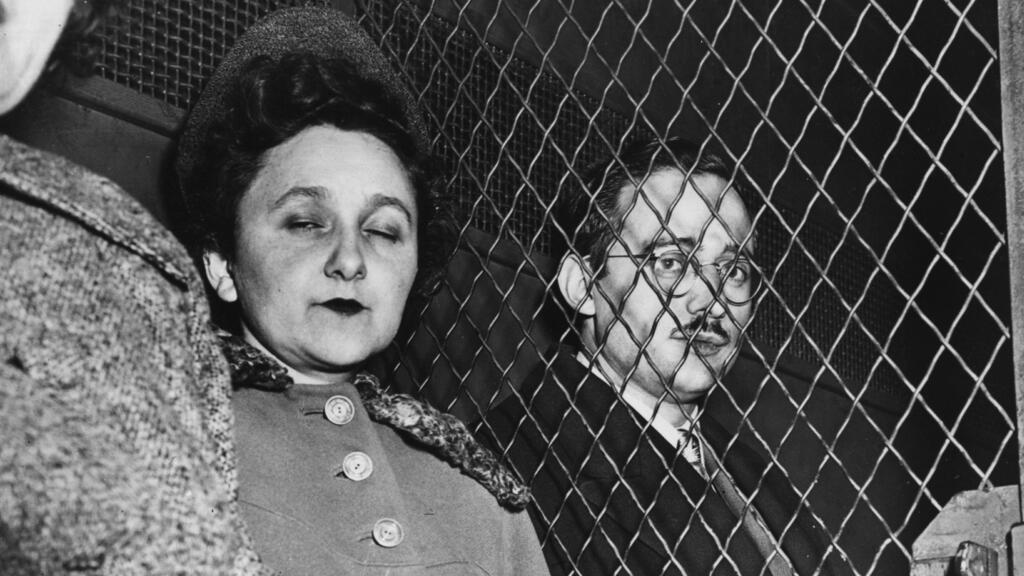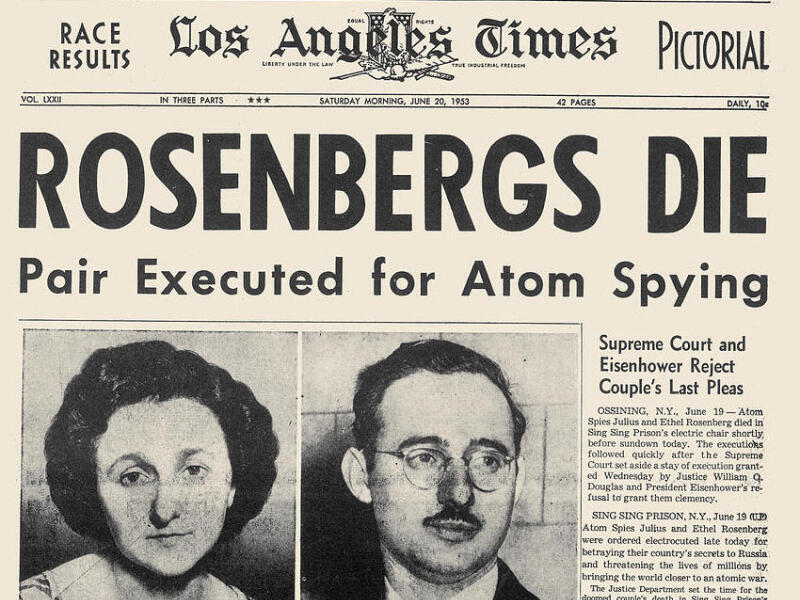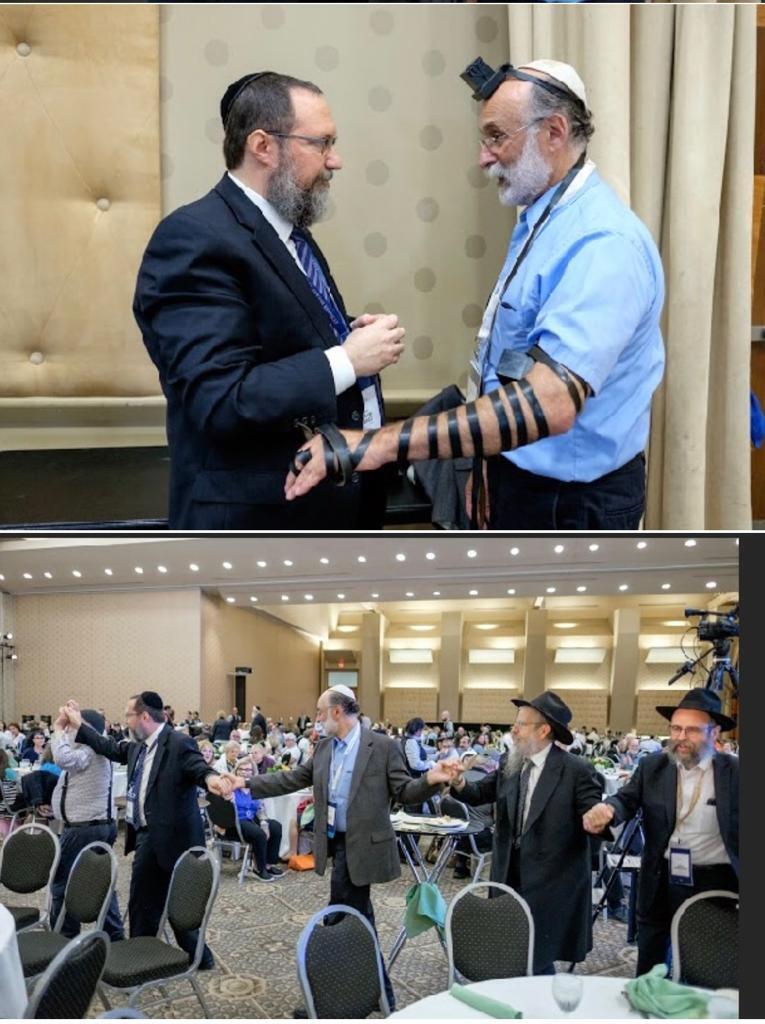Getting your Trinity Audio player ready...
Seventy years after the execution of Jewish couple Julius and Ethel Rosenberg by electric chair at Sing Sing prison in New York, their story still generates a great deal of interest. The Rosenberg espionage case was the largest spy case during the Cold War between the United States and the Soviet Union.
Read more:
Eight years ago, I met with the couple's children, Robert and Michael Meeropol, in a ceremony where the brothers handed over their family archive to the Archives Center at Boston University. Concurrent with the archive's transfer, an exhibition based on the documents opened. At the same time, news broke of the death of their uncle, David Greenglass, a 92-year-old man who served as a witness against his sister and brother-in-law, leading to their execution. After many years, Greenglass admitted that he lied in his testimony to save his wife from punishment.
Today, it is widely acknowledged that Ethel and Julius Rosenberg, their uncle David, and several other Jewish and non-Jewish individuals were members of a Communist spy group that operated during World War II and provided the Soviets with American nuclear secrets. Many of the judges and government officials involved in the case or who have studied it agree that the death penalty was excessive and a result of the anti-communist obsession that gripped the United States in the early 1950s.
The prosecutor in the trial who sought the death penalty was Jewish, and the judge was Jewish as well. It cannot be denied that they wanted to please the establishment and American public opinion, which at that time was marked by significant antisemitism. Ironically, during those years, Jews were accused and executed in the Soviet bloc for espionage in favor of the United States.
The trial lasted two years, but all appeals in the case were rejected. Requests for clemency were not granted, and appeals from prominent figures around the world, including Albert Einstein, were in vain. The Supreme Court ordered an immediate execution with no postponements. President Dwight D. Eisenhower finally denied the clemency request from his 37-year-old wife who was sentenced, stating: "The execution of two human beings is a grave matter. But even graver is the thought of those tens of millions who could have found their deaths in the atomized ruin caused by these two."
On June 20, 1953, Julius and Ethel Rosenberg were executed in the electric chair at Sing Sing prison in New York.
The rabbi recited psalms on the way to the electric chair
The American and international press extensively covered the case, with various newspaper articles describing in detail the execution that took place at 8:00 p.m. local time. Julius Rosenberg was executed first at 8:04 p.m., and the prison doctor pronounced him dead approximately three minutes later. Following that, his wife, Ethel, was brought to the electric chair at 8:11 p.m., and her death was pronounced at 8:16 p.m. Ten official witnesses were present in the execution chamber during the implementation of the sentence.
Julius Rosenberg walked toward the electric chair between two guards, preceded by a rabbi who recited Psalm 23 from the Book of Psalms. According to several reports, it was also noted that "Julius did not show any signs of excitement when the guards led him to the electric chair or when they placed the helmet with the electrodes on his head. As the guards secured the straps and electrodes, he looked calmly around without fear, and there was even an impression of a faint smile on his face. A solemn silence filled the room, and one could hear the sound of the reporters' pencils scratching on paper."
"Immediately after the completion of the execution of her husband, Ethel Rosenberg was brought into the death chamber. Again, the rabbi walked before her, reciting psalms. Before she reached the electric chair, one of her accompaniers tapped her on the shoulder and whispered something to her, and suddenly she turned around and kissed her on the forehead. She reportedly had said in Hebrew, 'Shalom rav ve toda rabbah' (Peace be with you and thank you)." One of the witnesses testified that this sudden movement disgusted the guards and others present more than any other event during the execution process.
Jewish supporters of communism
Although the execution was a result of a concentration of fear and vengeful desires and was not an appropriate response to the damage that the Rosenbergs caused to their homeland, and despite the denials today, it is clear that Julius Rosenberg was a communist spy who passionately adhered to and served Russia. His wife, Ethel, was involved in his activities, but she herself was not a spy and fell victim to a false accusation that was leveled against her by her brother.
It is difficult to understand the atmosphere in the United States in the years immediately following World War II without mentioning the significant fear of communism, particularly in light of the Soviet Union's formulation of the Stalinist version of the Communist International organization. The rise of the Nazis in Germany and fascism in Italy and Spain pushed many people in the 1930s to see communism as a political, social, cultural and economic system that would bring about an era of peace in which all people would be equal and no longer exploited by capitalist oppressors.
5 View gallery
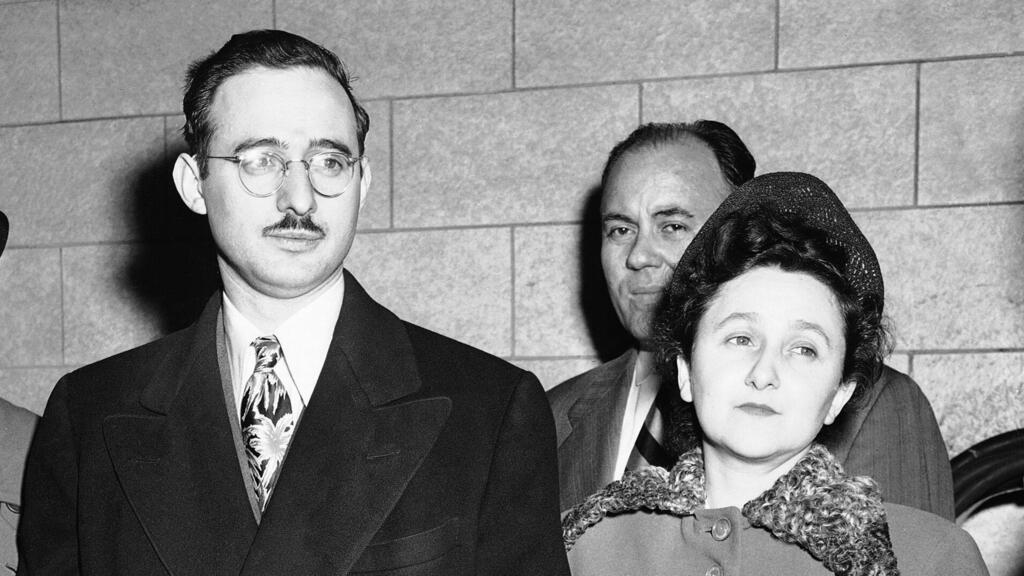

Julius Rosenberg and Ethel Greenglass were communist sympathizers from a young age
(Photo: AP)
The left gained traction among Western elites, including artists, writers, creators, and universities, much as it had gained influence among the Russian aristocracy in the late 19th century. Naturally, many Jews found their intellectual home in communist circles, seeing Stalin as the sun of the nations. Many Jews were among the instigators of the communist revolution (whom Stalin later eliminated) until Hitler targeted world Jewry, which resulted in a reversal of attitudes toward both communism and control of global wealth.
Among the Jewish immigrants from Europe who settled in the United States were activists in socialist organizations (such as the Bund) in Eastern Europe, and they, along with their influenced counterparts, formed a solid foundation for the ideas of the global communist revolution.
Family of spies
Julius Rosenberg (born in 1918) and Ethel Greenglass (born in 1915), were communist sympathizers from a young age and members of the American Communist Youth Movement. Julius completed his electrical engineering studies in 1939 and worked for the American Army Signal Corps from 1940 as an engineer and supervisor until he was fired in 1945 after his membership in the Communist Party was revealed.
Three years before his dismissal, in 1942, Rosenberg was recruited by the NKVD (the Soviet Union's secret intelligence and security agency) for the sake of the Soviet Union. His handler in the NKVD was Alexander Feklisov, who recruited several Americans for the espionage network, including Morton Sobell, who later confessed to full-scale espionage on behalf of Russia, Ruth Greenglass and her husband, David Greenglass, the brother-in-law of Julius Rosenberg, who worked as a soldering technician in the "Manhattan Project" – the American secret branch that developed the atomic bomb.
During the war against Nazi Germany, the Soviets were allies of the United States. However, due to ideological rivalry, the Americans were cautious about sharing their secrets, particularly regarding nuclear research and the development of the atomic bomb, with the Soviets. Despite the precautionary measures taken, communist spies managed to penetrate the highly classified Manhattan Project.
In the midst of World War II, the FBI began suspecting Soviet diplomatic missions in the United States of engaging in espionage and subversion. In 1943, American security agencies started deciphering encrypted documents from the Russian diplomatic corps (known as the Venona project). The decryption revealed the extent of Soviet espionage penetration. It was discovered that even in Los Alamos secrets were being leaked, but the sources were difficult to identify as the Soviet transmissions used code names instead of real names. It was only after the war that the identities of those involved began to be revealed.
At that time, no one knew that in Los Alamos, a senior Soviet spy, Klaus Fuchs, a talented physicist born in Germany, was serving as part of the team responsible for building the atomic bomb. Upon his arrival in the United States, Fuchs met with a contact known as "Raymond," who was actually the Jewish spy Harry Gold, and began passing classified information to the Russians through him.
Fuchs' espionage activities continued for many years without arousing suspicion among his colleagues. He was known as a quiet, diligent, and modest scientist. After the war, Fuchs moved to England, where he was eventually exposed in 1950 by the British intelligence service, MI5.
Initially, he denied any involvement in espionage, but later Fuchs confessed fully to his prolonged spying activities. If not for Fuchs' confession, it is possible that the Rosenberg family would have continued living their lives peacefully and raised their two children. However, Fuchs revealed to his interrogators the involvement of Harry Gold, who was his handler and the one who passed the secret documents to the Soviets. Gold, in turn, exposed a series of spies, including Greenglass, electronics expert Morton Sobell (who was Jewish), and the Rosenberg couple.
5 View gallery
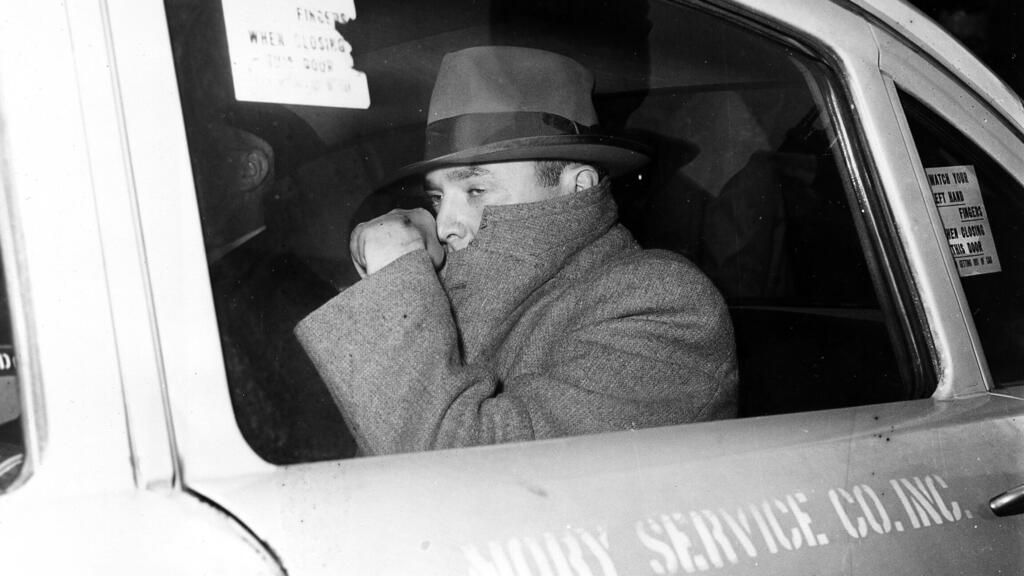

David Greenglass lied to protect his wife, which harmed his sister, Ethel Rosenberg
(Photo: AP)
Julius and Ethel Rosenberg were convicted of espionage in 1950. Julius was sentenced to death, while Ethel received a sentence of 30 years in prison. They were accused of passing classified information about the atomic bomb to the Soviet Union during World War II. The case was highly controversial, and there were debates about the extent of Ethel's involvement. Some historians argued that she played a lesser role compared to Julius. However, in 1953, both Julius and Ethel were executed in the electric chair.
Robert McFadden of The New York Times, who wrote a book about the case, stated that "according to historians, David Greenglass is one of the most controversial figures in the espionage case. In the trial itself, he testified that Ethel typed his atomic notes. However, years later, Greenglass recanted his testimony and said that he lied to protect his own wife from prosecution. According to the prevailing opinion, Greenglass's testimony had a significant impact on the conviction of his sister, Ethel, as the case against her was relatively weak compared to the case against her husband, Julius. The prosecution promised the court 118 witnesses but only presented 20, none of whom were nuclear scientists or experts."
With the opening of Soviet archives and the release of information from former KGB agents, it became clear that Julius Rosenberg was indeed involved in espionage activities for the Soviet Union. The level of Ethel's direct involvement remains a subject of debate, especially considering conflicting testimonies and evidence. Some witnesses, including former Soviet leaders Nikita Khrushchev and Vyacheslav Molotov, claimed that the Rosenbergs provided valuable information that accelerated the Soviet Union's development of the atomic bomb. However, Boris V. Brokhovich, the head of the Soviet institute responsible for developing the atomic bomb, stated in 1989 that they did not receive any useful information from the Rosenbergs.
There are doubts regarding the significance of the information that Rosenberg passed on about the atomic program. However, it is clear that he transmitted important information about communication systems, proximity fuses and the Lockheed P-80 Shooting Star fighter plane.
The judge, on the other hand, had a different opinion. "I believe that you have given the Russians the atomic bomb," Judge Kaufman wrote in his verdict. "Your crime is worse than murder. Your betrayal of the atomic bomb secret has already caused the communist invasion of Korea, resulting in the deaths of over 50,000 American soldiers, and who knows how many millions of innocent people will pay the price of your treason."
While imprisoned, the Rosenbergs wrote letters to their two children, then ages 4 and 9, and to each other, as they were held in isolation and separation. The collected letters, which form the core of the archive that the brothers handed over to the Howard Gottlieb Archival Research Center at Boston University, are now awaiting researchers who will focus on the Julius and Ethel Rosenberg case.
The Meeropol brothers are not "escaping" from their family's tragic past. To their credit, they seek to learn from the lessons and improve the lives of other children. They initiated the Rosenberg Fund for Children, which over its 28 years of operation has demonstrated its importance and the need for its existence.
The contribution of the family archive on the Rosenberg case to Boston University set the background for conversations with the two brothers, who were well aware of their Jewish identity, although they were not actively involved in Jewish life. In my conversation with Robert, he repeatedly emphasized their shared desire for the lessons from their parents' saga to be learned. When I asked him if it would be possible to raise funds for the Julius and Ethel Rosenberg Memorial Fund in the United States, he replied, "The beginning was very difficult, but we proved two things: that we give as much as we can from ourselves, and more importantly, over the years, the activities of the fund have been proof of our pure intentions."
When I asked if he had ever tried to establish contact with the Jewish community, he said that he always encountered indifference or hostility. "Michael and I separately wrote books about our lives and our very special family story, but we did not even receive one invitation to appear at a synagogue or any Jewish community center for a conversation based on the books."
The disconnection and distance, which lasted for decades, were finally broken by a Chabad emissary, Rabbi Efraim Mintz, who invited Robert to the Jewish Heritage Travel tour organized by Chabad each year. This year, it took place in Rhode Island in the eastern United States. In front of the 1,150 participants, Mintz managed to bring Robert (whose health is declining) back to his Jewish roots, and in front of the audience, Robert put on tefillin, or phylacteries.
Robert Meeropol returned to his roots, and it was already evident in our conversation that he seeks closeness to them and does not want to remain distant. The activity of the Rosenberg Fund for Children is the most honorable proof that the sons are not escaping their parents' actions but are definitely seeking amends. They deserve appreciation and recognition for the results they have already achieved and the projects they are working on for the sake of the younger generation.


